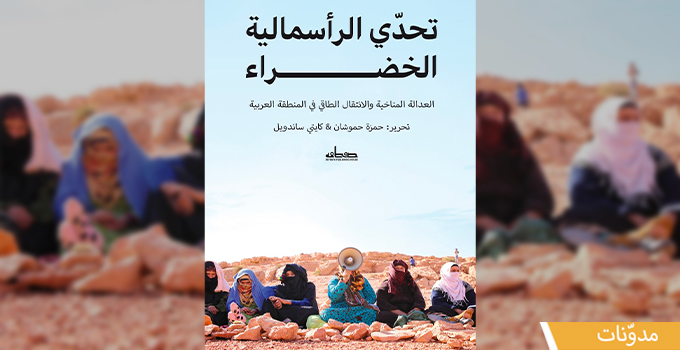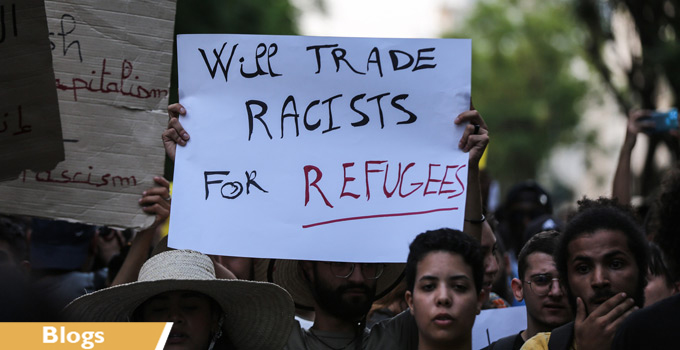
We Tunisian women have become accustomed to accepting a public narrative that treats us as one homogeneous group: « la femme tunisienne », or “the Tunisian woman”. The truth is that we are different, diverse, divided, and anything but homogeneous. We have been watching and monitoring what has been said about Tunisian women throughout the lead-up to these elections. Every candidate inevitably plays the « Tunisian woman” card. The term« Tunisian woman » is used in the singular form and molded to reflect what a candidate thinks Tunisian women should be or should look like, denying us agency and treating us as a problem to solve and a box to tick off on his political agenda.
During the televised debates, questions relating to the « rural woman » and to equality in inheritance have been raised. Playing this rural woman card tells a lot about the classist society we live in and about the denial of power matrix that dominates the dichotomies between rural/urban; educated/less educated; francophone/Arabic-speaking; veiled/unveiled women. Asking these questions only attests to utter ignorance and denial about what being president of “all Tunisians” means and about the place that women are occupying in the political agenda. Every year, the President of the Republic honors women who have “made it”. The presidency’s obsession with women occupying top levels masks the inequalities at the bottom, leaving many women disenfranchised. It also reminds us of what Laurie Penny’s observation that “While we all worry about the glass ceiling, there are millions of women standing in the basement—and the basement is flooding.” When are we going to have a president for the many women and not just the few?
If you don’t tell your story, someone else will tell it for you. This is what has happened to Tunisian women. Bourguiba told the story, and ever since we have followed that narrative. Stuck between the state feminism narrative and the mainstream bourgeois feminism narrative, many voices and nuances have not yet been heard. Meanwhile, we feminists have been busy categorizing who is a legitimate feminist and who is not, as if feminism were a ten-step program towards who becoming the true feminist, the essential feminist, « one of us ». At the same time the patriarchy thrives on our divisions and rivalries.
We must nonetheless recognize the remarkable achievements of Tunisian feminists in terms of pushing toward a progressive agenda; if we stand tall today, it is because we stand on the shoulders of the feminists who fought before us. However, this recognition of their achievements should not prevent us from thinking that better is not good enough, nor should it prevent us from looking critically at our work and our narrative andand from challenging each other in a more constructive way. The first legitimate question that occurs to us is: Are we really a movement? Are we really inclusive and diverse?
We define ourselves as intersectional feminists and we believe that feminism has saved and liberated us. We must also admit that feminism is imperfect, not because of its ideas and its vision, but because of the people working in its name. People in the movement are human, and humans are imperfect and sometimes inconsistent. We must therefore ask whether Tunisian feminism is a movement, or rather a diverse group of women’s rights and feminist organizations?
According the Sydney Tarrow ([1]), a sustainable movement is defined as follows: “At their base are the social networks and cultural symbols through which social relations are organized. The denser the former and the more familiar with the latter, the more likely movements are to spread and be sustained”. We need a movement that includes and reflects Tunisian women’s aspirations, needs, identities and discourses. Being inclusive might slow down some changes and processes, but it will make change sustainable, more representative and very hard to undo. We can look back at Bourguiba’s reforms and see how they wore out over time, and dismissed by many Tunisians for a number of complex reasons. Although, fortunately, the laws are still there. A top-down approach to the question of feminism in Tunisia can only be patriarchal, patronizing, classist and very short-sighted. Bourguiba’s were perhaps the right decisions to make in the 1950’s, but times are changed and we cannot use the same tactics and expect different results.
If we are serious about social change, movement-building is vital. We need to get back to grassroots organizing where women find sister-hood and solidarity, structure and a critical framework to understand their environment, nurture their sense of belonging, share their stories, bond with each other and build a collective power. We need a « powerwith » strategy, we need a safe space wherehaves and have-nots, successful carreer-oriented women and low-income workers, urban and rural, educated and less-educated and all shades in between can collaborate to undeermine the patriarchy. For this,in addition toan emphasis on theories, concepts and legal technicality, we need greater investment in women’s agency; we need to offer more diverse strategies and tactics that motivate and empower,giving room to all women to participate and raise their own voices. We are a sophisticated elite who know how to address donors, policy makers, media and the global fora, but do we really know how to address the forgotten women of this country? Do we have the stamina and willingness to push toward a diverse feminist scene and to build coalitions with respect, equality and solidarity? Turning the tables requires strong leadership from feminists themselves, but also depends on a radical transformation in the NGO world and in the business model that is slowly and painfully transforming activists to bureaucrats. Rather than spending time on the ground with women to reflect and strategize, activists are spending their time behind closed office doors responding to donors’ requirements for inflexible and short-term funding. Here we recall how these same donors can also be a factor in creating power imbalances and competitiveness among feminists.
In every election, women are threatened and their rights risk being undermined. For how long will we rely on political parties and parliamentary coalitions to protect us since we do not have adequate bargaining power? Power comes from the people. Building a base is therefore very important in terms of changing power dynamics, influence and legitimacy. The State as an institution is one of the patriarchy’s pillars, and in order to defy it we need a feminist movement that can play more important political role in redefining politics, setting the agenda and questioning the basic assumptions upon which power is based. We will never achieve this by having few visible, outspoken women figures with access to platforms and power circles. Most of the time, these same figures also end up being a card played in the game, or coopted by the same power they were fighting. Whether or not we are educated and privileged, the truth is that we are all victims of oppression and patriarchy and that until all of us are free, none of usare free. Liberating ourselves is a collective responsibility that requires a collective power. When that day comes, we women will no longer feel threatened by elections or candidates, but will instead constitute a vital force that is not merely capable of influencing election outcomes, but of making any president fear us.
Note





iThere are no comments
Add yours